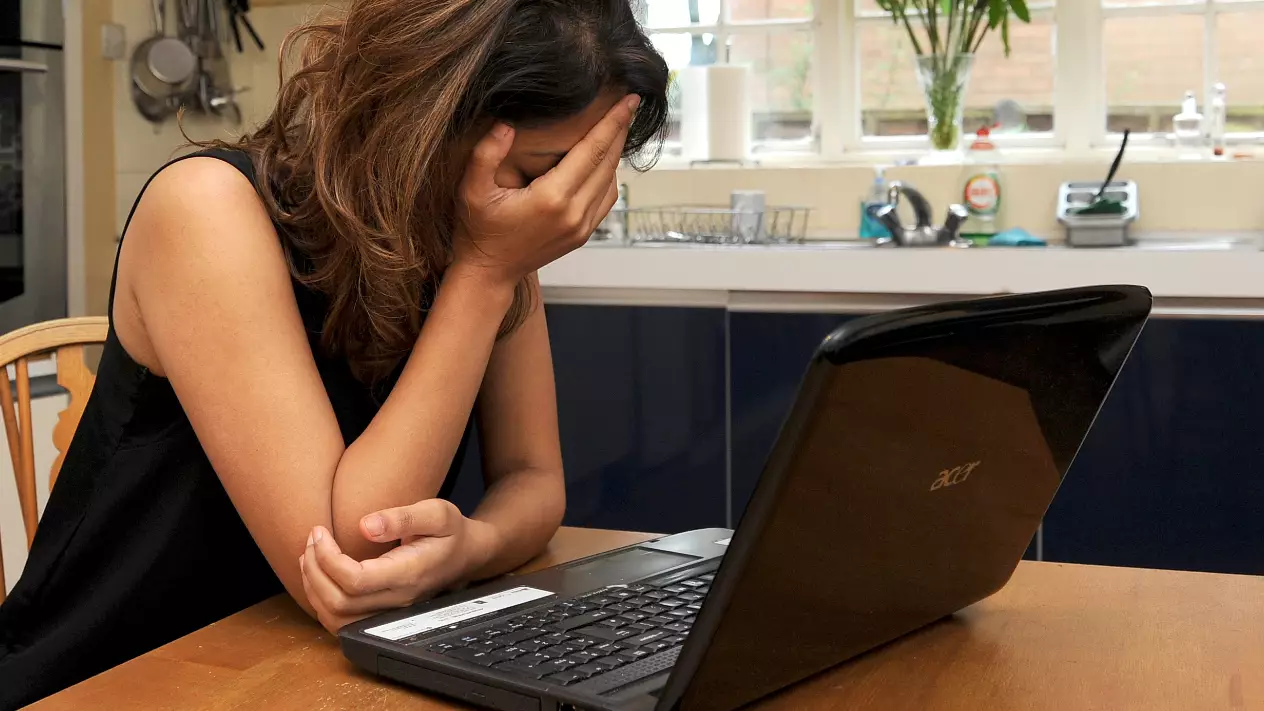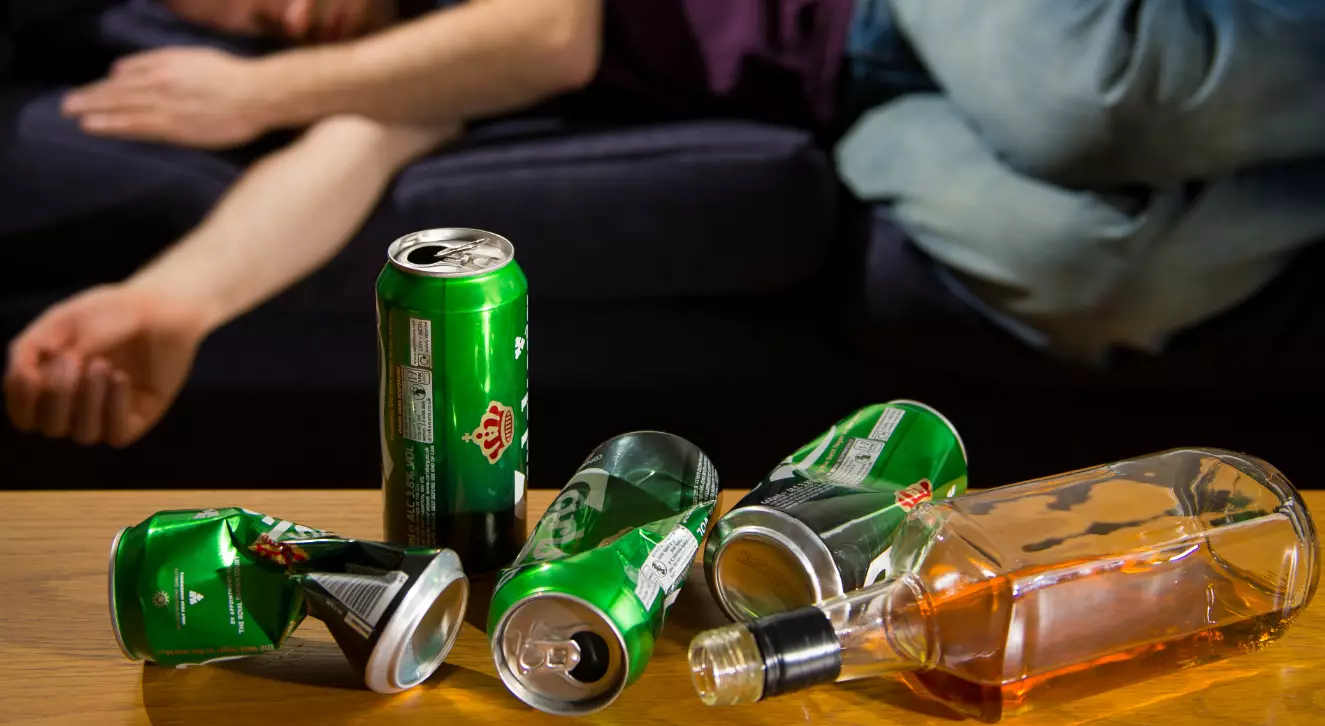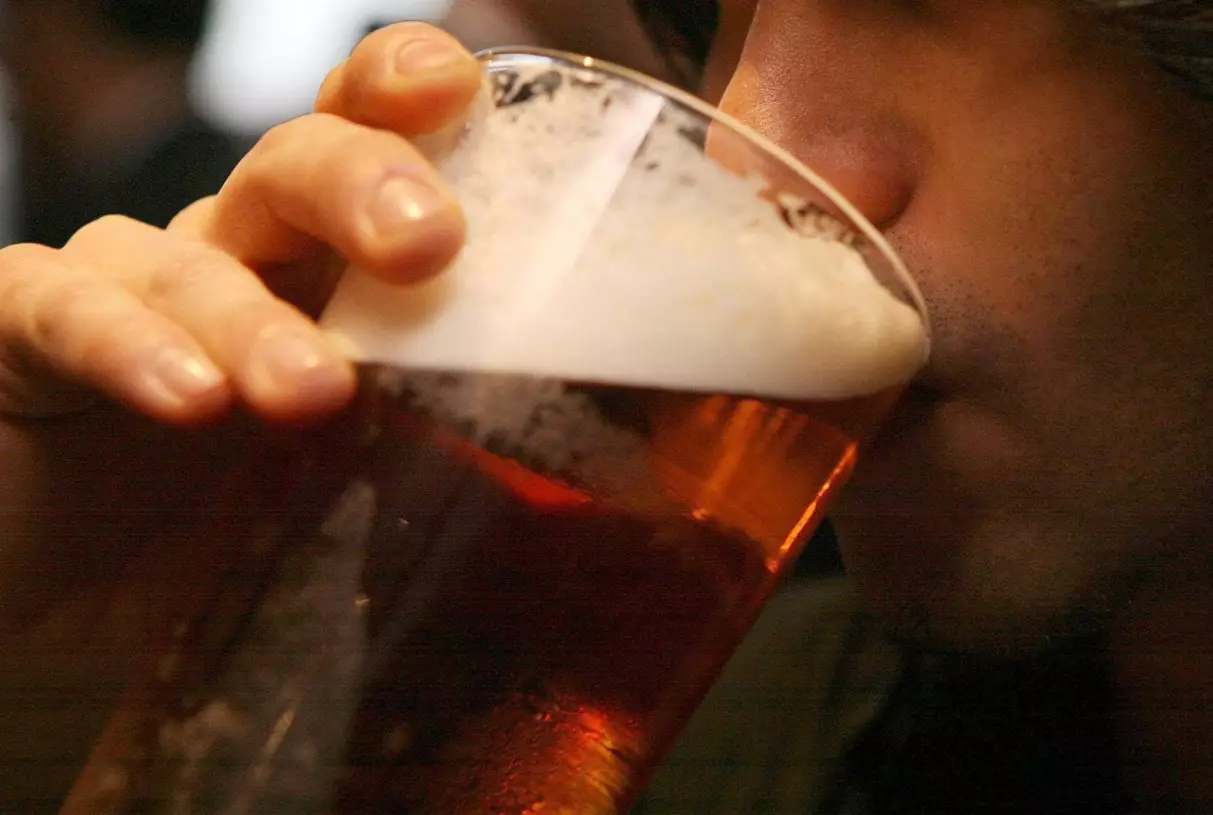
Dragging yourself to work on a Monday is bad enough at the best of times, but it can be especially soul-destroying if you've had a bit of a heavy one over the weekend.
That alarm goes off, and somehow you feel just as bad - if not worse - than you did on the Sunday after the sesh, although this time you have to tackle the reality of a full working day rather than burying yourself under the duvet.
Frankly, it's not fair. You drank lots of water the day before, smashed that greasy full English and managed to nurse yourself back to health through the power of truly crap telly and fistfuls of Doritos... Or so you thought.
So why do you still feel so shit? Is this brutal second wind of hungover misery just psychosomatic, or is the struggle very much real?
Well, according to science, the pain you feel while grappling with a two-day hangover is actually validated.

Dr Louisa Draper, medical director at Zava, told LADbible: "It's unusual to feel hungover for more than 24 hours, but if you find yourself feeling the effects for longer, it can be down to a number of factors. If you have had an epic night out, then your body is likely to feel the effects and does need time to repair itself.
"Firstly, alcohol is a diuretic, leaving you feeling dehydrated, so if you haven't managed to rehydrate yourself quickly, you may feel this effect for some time. Coupled with a poor diet the day after drinking, you may feel groggy and sluggish.
"You probably feel very tired too - it's likely that you had a late night and missed out on some hours of sleep, and additionally, sleep quality is often poor after drinking.
"Combining some medications with alcohol can also prolong the symptoms of a hangover. All of this can add up to feeling pretty rotten, even a couple of days after the big night."
Draper continued: "When you drink, alcohol enters the bloodstream and inhibits the body's production of vasopressin, a pituitary gland hormone which tells the body to retain water in the kidneys. Without this, water goes directly to the bladder, which is why drinkers make lots of visits to the loo, and leaves the body dehydrated.
"The headache that often signals the hangover is the brain's reaction to this loss of fluid, while the nausea and lack of energy that accompanies the headache is the body's response to low blood sugar levels and the loss of the minerals and electrolytes which help the body to function properly.
"The more you drank, the more likely you are going to feel these effects, and the longer you might take to recover."

What's worse, there's also some truth to the urban myth that hangovers get worse as we grow older, sadly.
"The body's ability to process alcohol can worsen with age," Draper explained.
"It has been suggested that a worsening hangover can also be linked to declining supplies of alcohol dehydrogenase, the enzyme which metabolises alcohol and breaks down its toxins, which is thought to lower with age."
Apparently, however, it's more likely to be lifestyle factors that play the biggest part in making us feel crap the next day. A strenuous commute, pressures at work or family commitments, for example, will understandably make the struggle even more real - so if you're concerned about feeling a bit ropey, you're probably better off accepting a fate of ordering pizza in and binge-watching Netflix all day.
What's more, many people drink less - and less regularly (I dunno who those people are, but sure), meaning when they do hit it hard, they find it harder to tolerate.
While it's all very useful being told hangovers are shit and will only get shitter, there must be some way to alleviate the suffering.
Mind you, it may not be the answer you wanted to hear, as according to Draper, prevention really is the best cure.
Some of the best ways of fending off a hangover include:
Keep track of how much you're drinking, and how strong each drink is - The ABV (alcohol by volume) will be either on the label or you can just read up in advance to know how strong different drinks are and what you're really drinking.
Choose clear spirits - Go for vodka or gin over red wine or dark spirits like rum, as the latter contain substances called congeners, which are thought to worsen hangover symptoms.
Drink at a pace that's comfortable for you - It's maybe easier said than done, but don't necessarily try and keep up with the LADs.
Stay hydrated - Keep drinking water, both in between drinks and at the end of the night, as it helps dilute alcohol in your stomach.
Eating is NOT cheating - Eat a meal before drinking, ideally including carbohydrates, so you're not drinking on an empty stomach, which increases the likelihood of vomiting or diarrhoea.

However, if it is too late for prevention - or you're simply just feeling too daft and wreckless to take the advice on board - after your BNO you can also catch up on rest to help ease the tiredness after a poor night's sleep, and top up with plenty of water to prevent any further dehydration.
Go for foods that will replenish lost minerals and amino acids (we're talking bananas, eggs or porridge), and if you've got a nasty headache or muscle ache on the go, painkillers can ease these symptoms.
Good luck to anyone nursing the evil beast that is a two-day hangover today - we're here for you. Maybe just don't hit it quite so hard next time...
Featured Image Credit: PATopics: Science, News, Food And Drink, Alcohol, Hangover